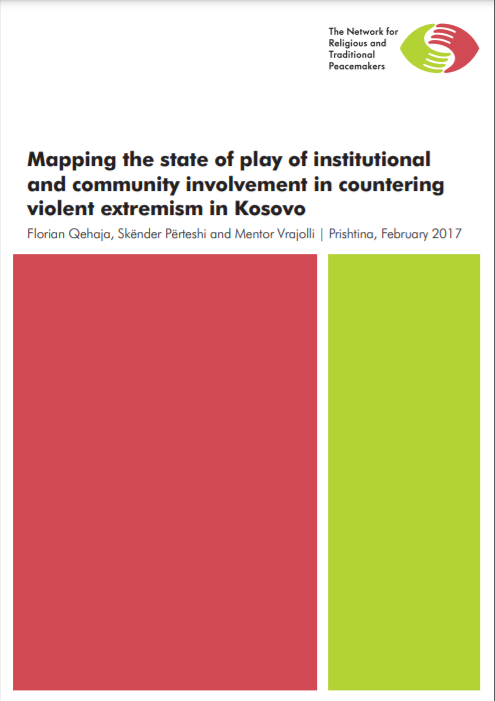13/02/2017

Qendra Kosovare për Studime të Sigurisë (QKSS)
Ministria e Punëve të Jashtme Finlandë
Florian Qehaja, Skender Perteshi, Mentor Vrajolli
Kosovo has adopted a sound policy framework in the field. Its implementation has been challenged as a result of limited capacities and the absence of community involvement;
• Kosovo has adopted a law banning its citizens from joining foreign conflicts. This law has produced some positive outcomes in the short term;
• The first local referral mechanism has been introduced in the municipality of Gjilan. This referral mechanism is made up by Ministry of Interior Affairs in Kosovo and is composed local governance structures, civil society and Islamic community representatives aiming to contribute to preventing violent extremism in this municipality;
• The Kosovo Government has started to design two reintegration and de-radicalization programmes aiming to integrate former foreign fighters and their family members into society. These two programmes are expected to start implementation in the first half of 2017;
• There is an overall attempt from the donor community to be involved in the process of prevention and de-radicalization. Results
can only be achieved when local ownership is fully ensured and the international community stays in the “back seat”;
• Overall, there is a limited understanding of violent extremism among institutions, particularly at a local level. The Kosovo Police and Ministry of Internal Affairs are the best-informed institutions. There is also ongoing community confusion in handling religion-based extremism as a new type of violent extremism;
• There is poor inter-institutional cooperation in the field of countering violent extremism;
• Civil society is barely involved. The role of the Islamic Community continues to be undermined. Increased involvement of the Islamic Community and communities in general is essential to national endeavors;
• Lack of opportunities and jobs for the youth in the three selected municipalities (and other municipalities) have created the unintended consequence of youth being recruited into extremist ideologies and participation in foreign conflicts in Syria and Iraq;
• The poor educational system and lack of extra-curricular activities also creates space for recruiters to pursue their agendas. The absence of critical thinking within the public school system creates space for individuals and groups with violent ideologies to manipulate the youth. Often, their ”methodology” appears much more attractive than some conventional teachers;
• The isolation of Kosovars and ongoing visa regime by the European Union presents an overall obstacle for the youth. This allows youth to travel with no visa requirements to the Middle East and Turkey, often ending up in Islamic schools with the most conservative thinking.
This report is supported by Ministry for Foreign Affairs of Finland and is Commissioned by The Network for Religious and Traditional Peacemakers.